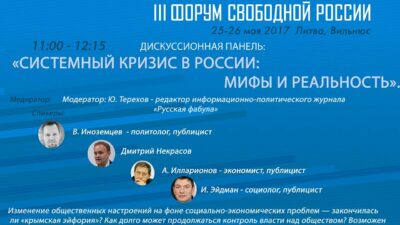British Prime Minister Boris Johnson has warned that Russia’s military buildup near Ukraine, which the West suspects is a prelude to an invasion, has triggered Europe’s most serious security crisis in decades, as Moscow began holding joint military exercises in Belarus involving more than 30,000 troops.
As Johnson spoke in Brussels at a joint news conference with NATO chief Jens Stoltenberg on February 10, Britain’s foreign secretary, Liz Truss, met with Russian Foreign Minister Sergei Lavrov in the Russian capital where she called on Moscow to withdraw its troops to show that it is really interested in diplomacy.
European leaders and top diplomats have been scrambling across the continent to seek ways to tamp down tensions in a crisis that Johnson said has reached its most perilous phase. He called for a combination of diplomacy, economic coercion, and military strength to counter Russia’s actions.
“This is probably the most dangerous moment, I would say, in the course of the next few days, in what is the biggest security crisis that Europe has faced for decades, and we’ve got to get it right. And I think that the combination of sanctions and military resolve, plus diplomacy are what is in order.”
Stoltenberg echoed Johnson’s comment, saying Europe faced a “dangerous moment” as the amount of warning time the alliance would have before any possible invasion by Moscow was shortening.
“The number of Russian forces is going up. The warning time for a possible attack is going down…NATO is not a threat to Russia, but we must be prepared for the worst while remaining strongly committed to finding a political solution,” Stoltenberg added.
In Moscow, Truss told Lavrov that Russia’s “very threatening posture” should be reversed and troops should be moved from the border with Ukraine.
“I can’t see any other reason for having 100,000 troops stationed on the Ukrainian border apart from to threaten Ukraine, and if Russia is serious about diplomacy they need to move those troops and desist from the threats,” Truss told a news conference in Moscow after her talks with Lavrov.
‘Threatening Posture’
“Minister Lavrov has said to me today that Russia has no plans to invade Ukraine but we need to see those words followed up by actions and we need to see the troops and the equipment that is stationed on the Ukraine border moved elsewhere, because at present it is in a very threatening posture,” Truss said.
Lavrov in turn said Russia rejects “ultimatums and threats” and that its interests need to be taken into consideration and respected if there is to be a de-escalation of the crisis.
“We support the normalization of our relations, their improvement and resuming constructive development,” Lavrov said at the news conference.
“Of course, this is possible only if they are based on the principles of equality and respect for each other’s interests. Imposing any conditions, ultimatums, and threats will definitely lead to nowhere. The relations should be a two-way street,” Lavrov said.
While tens of thousands more Russian troops have amassed in other border areas near Ukraine, the Kremlin has denied it is planning an attack, saying it has the right to move its troops as it sees fit across its own territory and its allies’ territory with their agreement. It says its military exercises are defensive in nature.
Responding to Truss’s comments at the same news conference, Lavrov claimed Western threats against Moscow would only heighten tensions over the situation.
“Ideological approaches, ultimatums, threats — this is the road to nowhere,” Lavrov said, adding “we can only normalize relations through mutually respectful dialogue.”
As part of Britain’s coordinated diplomatic effort, Johnson was set to travel from Brussels to Warsaw to meet Polish President Andrzej Duda later on February 10. Meanwhile, British Defense Secretary Ben Wallace is expected in Moscow on February 11.
Speaking to the BBC ahead of his trip, Wallace warned that the Kremlin’s actions were heading in the wrong direction in spite of efforts to find a diplomatic solution.
“Despite the talking, the direction of travel is in the wrong way,” Wallace told BBC Radio. “The Russians are still growing their battalion tactical groups … They are planning to start a nuclear strategic exercise soon, and indeed we see more activity elsewhere.”
He said Britain had seen intelligence that Moscow was engaging in plans for so-called “false flag” operations as a pretext for invading Ukraine, as well as carrying out cyberattacks and other destabilizing activity.
Amid Europe-wide diplomatic efforts, German Chancellor Olaf Scholz will meet the leaders of the Baltic countries — all three of whom are former Soviet republics — in Berlin on February 10. Scholz will also travel to Kyiv and Moscow next week
Read more https://www.rferl.org/a/russia-ukraine-truss-lavrov-exercises/31695968.html




